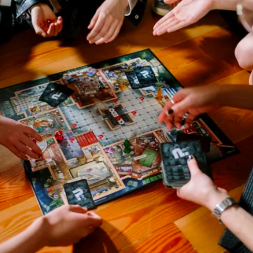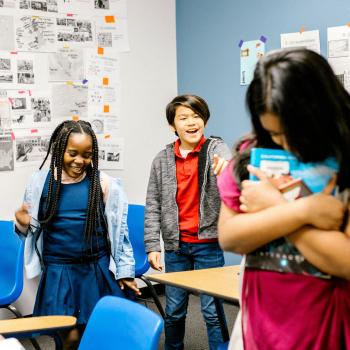
Gamification & Game-Based Learning
Explore the transformative power of gamification in our immersive 6-day course, held in the picturesque setting of Madeira. Discover how gamification transcends entertainment, fostering engagement, productivity, and focus. This program, led by João Garrido, delves into the art of integrating game design principles into diverse contexts, unleashing the potential for enhanced learning and motivation
Description
What is gamification? Gamification is the use of techniques, strategies and game design in other contexts that are not necessarily games. It's all about bringing the game to reality and thereby impact areas such as engagement, productivity, focus, determination, among others, and make it simpler to achieve goals and objectives at any context. Through gamification, it is possible to transform work or study routines and make people feel more inclined to dedicate themselves to the tasks and challenges that each situation requires.
Why is gamification so effective? According to experts, the gaming experience goes far beyond the entertainment factor and goes through other essential points, such as the need for competition (which is inherent to every human being), instant feedback, the possibility of rapid evolution, and the search for tangible rewards. The creation of communities and the sense of urgency that work on in games is also something that encourages you to continue on that task and makes it possible for the goals to be achieved.
How to implement gamification in teaching and learning? If you're thinking that implementing a gamification system in your classroom is expensive, complicated or requires a lot of resources, you're strongly mistaken. With some simple measures, you can apply certain notions of gamification to your content and encourage students to have greater engagement, motivation and to be able to evolve quickly and successfully. Some of the techniques go through:
- Creating a scoring and evolution system;
- Offering rewards;
- Stimulating competition;
- Offering fast and constant feedback.
More Infomations: https://www.picxxi.com/_files/ugd/0d833e_e7e3f8c36ed34eb19515f670a148b596.pdf
Learning objectives
- Grasp the logics behind various game types.
- Understand game design concepts and methodology.
- Develop a game for educational purposes.
- Utilize gamification to instill social and cultural values.
- Integrate games into instructional design for enhanced learning.
- Apply gamification to the design of a Curricular Unit.
Check out our dedicated page:https://www.picxxi.com/Gamification-Game-BasedLearning
Methodology & assessment
Course introduction and overview.
Icebreaking activity for trainer and participants.
Overview of pedagogical design using apps and software tools.
Introduction to learning theories and instructional design methodologies.
Introduction to the concept of gamification.
Tuesday: Game Design Methodology
Elements of a fun game (obstacles, rewards, tasks, pride, happiness).
User-centered design and the importance of audience knowledge.
Building blocks of great missions for gamification.
Motivational drivers in gamification.
Game mechanics, reasons to play, and the role of points, badges, and leaderboards.
Use of story and emotions in gamification.
Wednesday: Introduction to Scratch Game Creation
Overview of visual coding.
Introduction to Scratch interface.
Creating sprites and using code blocks.
Types of Scratch games.
Steps to create a game on Scratch.
Add a backdrop.
Add a sprite.
Make the sprite move.
Add difficulty.
Add sound.
Increase the score.
Thursday: Using Apps and Digital Tools for Gamification
Overview of gamification digital tools.
Educational tabletop or board games online.
Quiz games for gamification.
Storytelling as a gamification element.
Scavenger hunting in gamified learning.
Evaluation of learning through gamification.
Friday: Practical Application Work
Pedagogical design of a curricular unit using gamification.
Implementation of student-centered learning activities.
Saturday: Practical Application Work
Continued work on practical applications.
Course evaluation.
Awarding of the course Certificate of Attendance.
Saturday (Afternoon): 21st Century Skills and Cultural Activities
Exploration of 21st-century skills.
Discussion on the values of art and culture.
Excursion tour and external cultural activities.
Certification details
Participants receive a 30-hour certificate for attending the course.
Pricing, packages and other information
-
Price:480Euro
Additional information
-
Language:English
-
Target audience ISCED:Primary education (ISCED 1)Lower secondary education (ISCED 2)Upper secondary education (ISCED 3)
-
Target audience type:TeacherStudent TeacherTeacher Educator
-
Learning time:25 hours or more
Upcoming sessions
More courses by this organiser


Equals and proudly different! Teaching gender through art and theater

